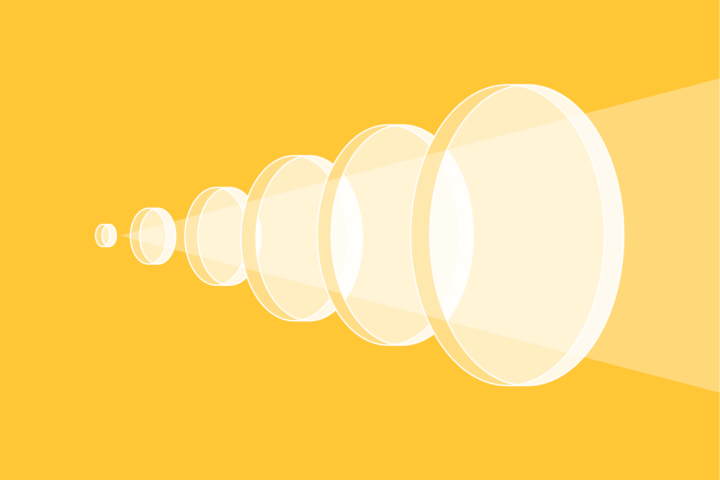Funding and accelerating innovative suicide prevention solutions
How VA’s Mission Daybreak catalyzed investment in a problem that matters.

Problem
Suicide is a serious public health problem that affects communities everywhere. In 2020, more than 44,000 American adults died from suicide, including 6,146 U.S. Veterans. Suicide prevention is a complex problem, with a multitude of risk and protective factors that affect every individual differently — and the unique nature of the Veteran experience can often make Veterans particularly vulnerable. To be effective, prevention efforts would need to meet individuals where they are, rather than take a one-size-fits-all approach. As Veterans reflect the diversity of the U.S. population, new interventions that offer healing and recovery to Veterans would also support suicide prevention efforts for all communities.
Preventing Veteran suicides is a top clinical priority for the U.S. Department of Veterans Affairs. Suicide has no single cause, and no single strategy can end this complex problem. Reducing Veteran suicides would require a diversity of solutions from a diversity of innovators — including Veterans, researchers, technologists, advocates, clinicians, health innovators, and service members. VA wanted to take an ecosystem approach, identifying, funding, and accelerating many different solutions from a broad base of solvers. The right kind of program wouldn’t end with a monetary award; it would serve as a mechanism for continued partnership, engagement, and market-shaping. It would set an audacious goal and launch a movement bringing hope to those in crisis and those who want to help.
Context
As the nation’s largest integrated healthcare system, VA had an opportunity to influence the future of suicide prevention for all Americans. Matching its ambitions with resources presented some uncertainty — what if a large cash incentive didn’t yield viable solutions? — but in this case, maintaining the status quo was an even bigger risk.
The scale of a problem informs the scale of investment in solving it. While consumer mental health has seen an enormous amount of investment activity — private investors have poured billions of dollars into behavioral health ventures — far less has been invested in suicide prevention. To meaningfully stimulate the market and galvanize an ecosystem of innovation, VA would need to match its investment to the scale and complexity of the problem.
Solution
Luminary Labs partnered with Capital Consulting Corporation to design and produce Mission Daybreak, a $20 million grand challenge to reduce Veteran suicides. The grand challenge was part of VA’s 10-year strategy to end Veteran suicide through a comprehensive, public health approach, and at the time of Phase 1 launch in May 2022, Mission Daybreak offered the largest cash incentive prize in federal history.
While we frequently advocate for narrowing a problem statement during challenge design, VA sought a breadth of solutions, and the funding and ambition of the program was well-suited for a “big tent” approach supported by a partnership between two VA teams: the VHA Innovation Ecosystem and the Office of Mental Health and Suicide Prevention. The challenge engaged a diverse group of innovators and fostered solutions across a broad spectrum of focus areas.
The multiphase challenge launched in May 2022 and received more than 1,300 concept submissions in Phase 1 from Veterans, Veteran Service Organizations, community-based organizations, health technology companies, startups, and universities — with solutions ranging from lethal means safety concepts, to targeted virtual care programs, to other promising suicide prevention solutions that offer healing and recovery to Veterans.
In September, Mission Daybreak announced Phase 1 awards: 30 finalists each received $250,000 and advanced to the Phase 2 virtual accelerator program. In recognition of their solutions, an additional 10 teams each received a Promise Award of $100,000.
We designed a Phase 2 accelerator for the large cohort of finalists advancing a wide range of solutions across different focus areas and at different levels of fidelity. The accelerator helped finalists develop ambitious but achievable roadmaps for prototyping, iteration, testing, and evaluation. Accelerator resources included interactive learning modules, mentorship and technical assistance from experts, networking opportunities, and exclusive access to custom synthetic VA datasets — as well as cloud computing access and technology partner support from Amazon and Microsoft. Finalists learned how to navigate clinical structure and connect technology solutions within clinical systems, and refined their solutions through the lens of Veteran-centered design. Expert mentors from Amazon also provided pitch support and team assessments during the accelerator. In November, the 30 finalists showcased their suicide prevention solutions at Demo Day, an in-person event hosted by Samsung at its Executive Briefing Center in Washington, D.C.
A multidisciplinary judging panel — representing a diversity of perspectives, from Veterans and clinicians to social workers and technical experts — evaluated Phase 2 submissions from the 30 finalists and recommended 10 winners based on the official evaluation criteria. In just eight short months, VA had launched a funding and acceleration mechanism to deploy $20 million in capital.
Results
Mission Daybreak will continue, building off the work that began with the grand challenge. VA will look to pilot, support, and scale promising innovations so that Veterans can realize the benefits of these solutions. Luminary Labs is providing active support to connect innovations within the Veterans Health Administration’s Innovation Ecosystem.
If you’re a Veteran having thoughts of suicide or you know one who is, contact the Veterans Crisis Line 24/7/365 days a year. Dial 988 then press 1, chat online, or text 838255.
